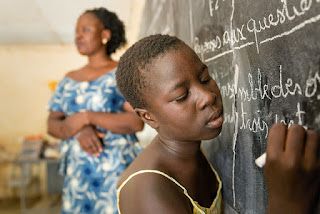Women's role in peacemaking and conflict resolution
In recent years, the importance of women's contributions to conflict resolution and peacebuilding has grown. Their contributions are crucial to establishing lasting peace. Women's perspectives are distinctive and can make a big difference in conflict prevention, conflict resolution, and post-war reconstruction.
Women have historically frequently been left out of official peace processes, but in recent decades, awareness of their contribution to peacebuilding has increased. The United Nations Security Council Resolution 1325, passed in 2000, advocates for the participation of women in all facets of peacebuilding and acknowledges the significance of women's involvement in peace processes.
Women bring a unique viewpoint to peace talks and can assist in addressing the underlying issues that contribute to conflict, such as poverty, injustice, and prejudice. They can also ensure that post-conflict reconstruction initiatives take women's and girls' needs into account. Women's involvement in peace talks may result in more inclusive and long-lasting settlements.
Women's groups and grassroots movements have been instrumental in advancing international peace and conflict resolution. Women's organizations have pushed for peace-building initiatives that deal with the underlying issues that lead to conflict, such as inequality and discrimination. Also, they have aided in establishing secure settings for disputing parties to communicate and negotiate.
There are several instances of how women have helped to promote peace and resolve conflicts in different parts of the world. Women's organizations, for instance, were instrumental in brokering the Good Friday Agreement in Northern Ireland, which put an end to decades of war. Women's organizations in Liberia were crucial in putting an end to the civil war and fostering inter-ethnic harmony.
Women still encounter considerable obstacles to taking part in peace initiatives, though. Women's opportunities to participate in decision-making processes, including peace discussions, are frequently restricted by gender discrimination and cultural conventions. By participating in combat zones, women also run security dangers, thus their safety must be protected.
The root causes that prevent women from participating fully in peacemaking and conflict resolution must be addressed in order to support their participation. This entails advancing gender equality, combating discriminatory laws and practices, and offering assistance and resources to grassroots movements and women's organizations. It also entails appreciating the contributions made by women to peacebuilding and ensuring that they have a significant part in all facets of the peace process.
In conclusion, women's participation in conflict resolution and peacebuilding is crucial for establishing a lasting peace. Women can assist address the underlying causes of conflict because of their distinctive perspective. We can build a more inclusive and peaceful society by encouraging women to participate in peace processes and removing the obstacles that stand in their way.




Comments
Post a Comment